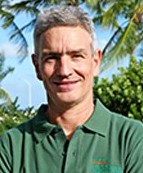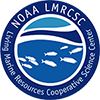
PROGRAM CO-DIRECTOR (University of Miami-RSMAS)
Research Associate Professor, Marine Ecosystems & Society
University of Miami-RSMAS
Phone: (305) 421 4607 | Email: ddie@rsmas.miami.edu
- Chair – Scientific Committee of the International Commission for the Conservation of Atlantic Tunas (ICCAT).
- Associate Director – Cooperative Institute of Marine & Atmospheric Sciences, University of Miami
- Technical Coordinator – Center for Independent Experts
- Project Co-Director – NOAA-LMRCSC
Education
University of Miami
Ph.D., Marine Living Resources
Universidad de La Laguna, Spain
B.S., Zoology
Research Interests
- Development of mathematical and statistical models (both for prediction and estimation) to support natural resource management.
- Developing an understanding of the mechanisms that are key to the sustainability of fisheries and relating such mechanisms to the processes of ecosystem management.
- The assessment and management of worldwide fisheries.
- Assessment of tuna, billfish, sharks and reef-fish fisheries in the Atlantic and Pacific Oceans.
Selected Publications
- Forrestal FC, McDonald MD, Burress G and Die D.J. 2017. Reflex impairment and physiology as predictors of delayed mortality in recreationally caught yellowtail snapper (Ocyurus chrysurus). Conservation Physiology 5: 1-12.
- Pons, M., Arocha F., Domingo A., Die D.J., Brazeiro A. and Hazin F.H. 2016 . Potential use of anal fin spines for assessing age and growth of longbill spearfish, Tetrapturus pfluegeri, in the western Atlantic Ocean. Bulletin of Marine Science 92: 385-398.
- Saul S. and Die D.J. 2016. Modeling the Decision-Making Behavior of Fishers in the Reef Fish Fishery on the West Coast of Florida. Human Dimensions in Wildlife 21: 567-586.
- Die D.J. 2016. Challenges faced by management of the Atlantic tuna stock related to the development of Mediterranean blluefin tuna farming. In: Advances in tuna aquaculture – from hatchery to market. Academic press. pp 43-58
- Sculley M. and Die D.J. 2016. Inferring seasonal movements of tropical tunas between regions in the eastern Atlantic Ocean from catch per unit effort. ICCAT Col. Vol. Sci. Pap. 72: 747-785
- Council, E. and Die D.J. 2015. The Relative Importance of Subpopulation Connectivity and the Age Distribution of Mortality in Exploited Marine Fish Populations. Ecological modelling 312: 247-255.
- Phillips, K., Mansfield K., Die D.J. and Addison D. 2014. Survival and remigration probabilities for loggerhead turtles (Caretta caretta) nesting in the eastern Gulf of Mexico. Marine Biology 161: 245-252.
- Die, D.J. Sculley M. and Lauretta M. 2014. Simulating tagging of tropical tuna in the equatorial atlantic ocean. ICCAT Col. Vol. Sci. Pap. 70: 2710-2724
- Braccini, JM, Troynikov VS, Courtney AJ, Die DJ, Prosser A and Montgomery SS. 2013. Stochastic growth of the eastern king prawn (melicertus plebejus (Hess, 1865)) harvested off eastern Australia. Crustaceana 86: 651-660.
- Saul, SE Walter III J, Die DJ ,Naar DF and Donahue BT. 2013. Modeling the Spatial Distribution of Commercially Important Reef Fish on the West Florida Shelf. Fisheries Research 143: 12-20.
- Saul S.E., Die DJ., Brooks EN. and Burns K. 2012. An individual-based homing model of ontogenetic migration in reef fish using a biased random walk. Trans. Am. Fish. Soc. 141: 1439-1452
- Forrestal F, Coll M, Die DJ, and Christensen V. 2012. Ecosystem effects of Bluefin Tuna (Thunnus thynnus thynnus) aquaculture in the North-Western Mediterranean Sea. Marine Ecology Progress Series 456: 215–231.
Biosketch
Dr. David Die received a B.S. in Zoology from the Universidad de La Laguna in Spain and a Ph.D. in Marine Living Resources from the University of Miami. He develops mathematical and statistical models (both for prediction and estimation) to support assessment of fishery resources and quantitative evaluation of the performance of natural resource management. He specializes in developing an understanding of the mechanisms that are key to the sustainability of fisheries. He has researched fisheries worldwide (Oceania, Asia, Latin America and Africa) and some of his research has been instrumental in the development of major management changes (fishing closures, fleet capacity reductions) in several fisheries.
Presently, Dr. Die is focusing on the assessment of tuna, billfish and reef-fish fisheries in the Atlantic. He has current collaborative research links with scientists in fishery Institutions all around the world. He is the Associate Director of the Cooperative Institute of Marine and Atmospheric Sciences at the University of Miami, and a Technical Coordinator for the Center for Independent Experts, one of the main vehicles used by NMFS to oversee the quality of its science.

NOAA Living Marine Resources Cooperative Science Center
University of Maryland Eastern Shore (Lead Institution)
(410) 651-7870
Award numbers: FY 2021 Award #NA21SEC4810005
Funding Agency: NOAA Educational Partnership Program with Minority-Serving Institutions (EPP/MSI)


